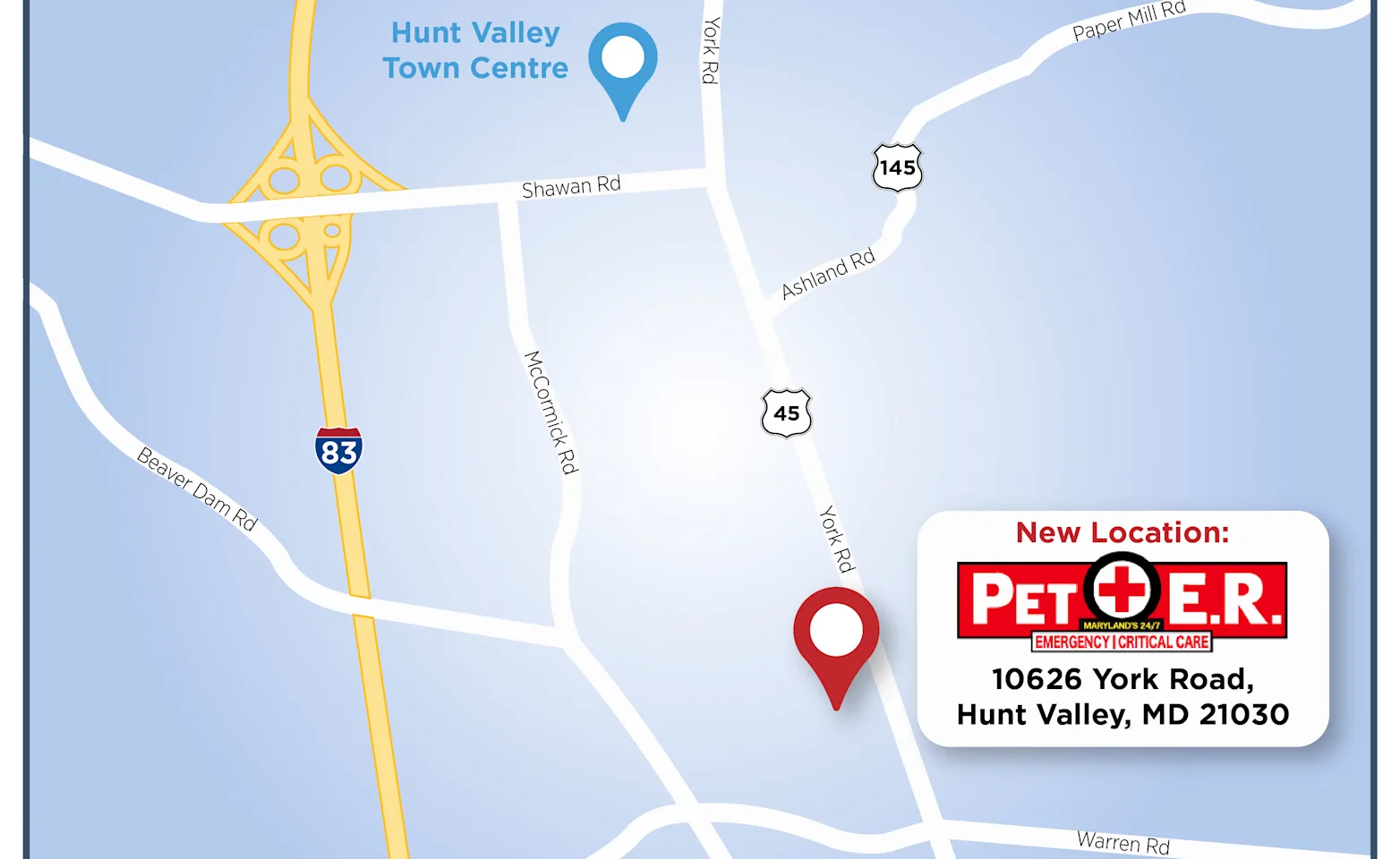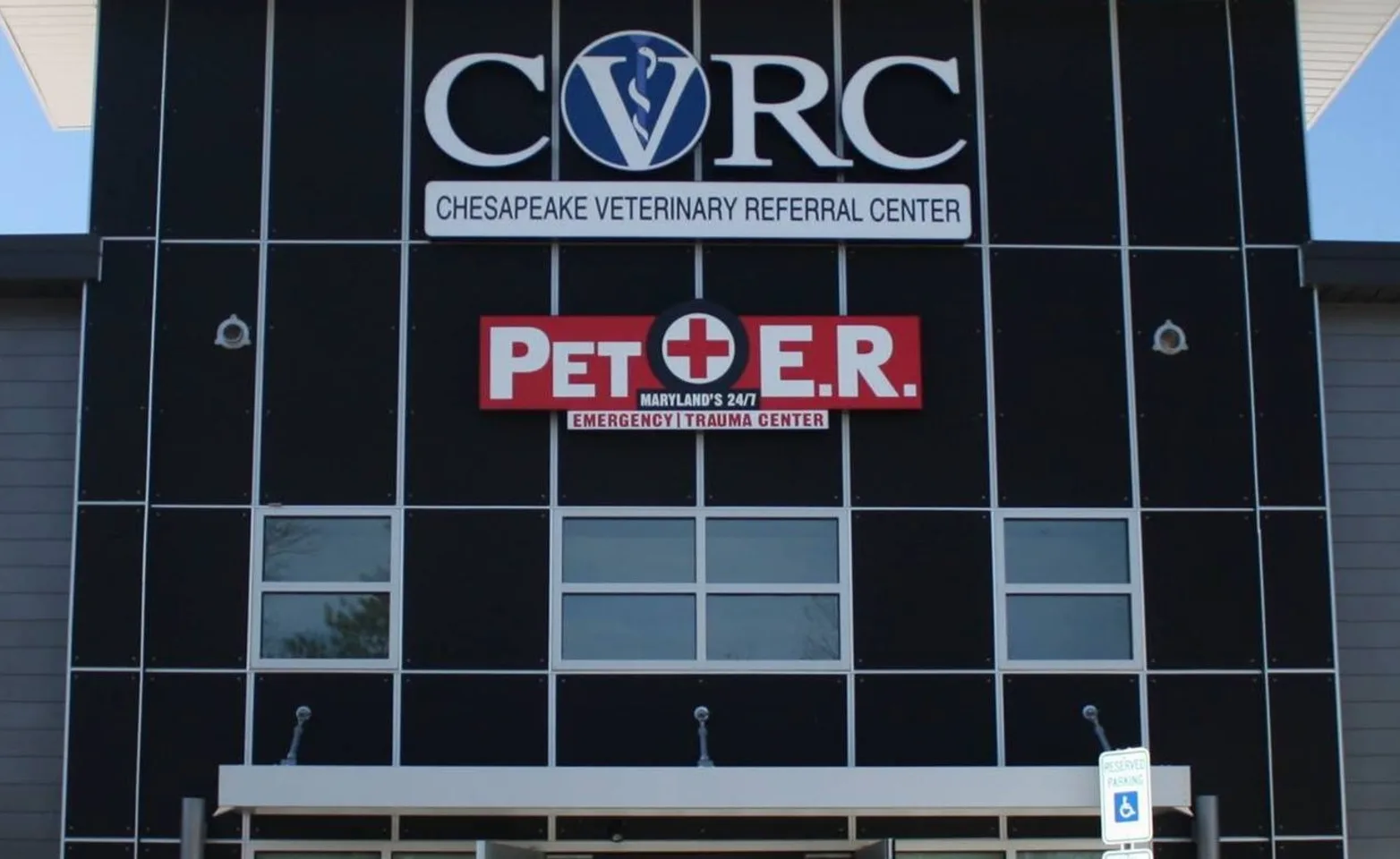Visit us at either of our locations in the Baltimore, MD area.
Pet+E.R.
Our Locations
Symptoms that may signal that your pet is having a health emergency:
Labored or stopped breathing
Discoloration of the mouth (ex: blue or red gums or tongue)
Large cuts or wounds that are excessively bleeding or have visible bone
Sudden passing out, collapse, or difficulty to get back up
Failure to respond or rouse when called or moved
A bite from an unidentified snake or insect
A bite from a wild animal or another pet whose vaccination history is unknown to you
Seizures
Paralysis of the back legs (especially in cats)
Any combination of vomiting, diarrhea, lethargy, staggering, difficulty urinating, and excessive panting or drooling may be symptoms of anaphylactic shock
Any combination of swelling, hives, excessive salivation, vomiting, and diarrhea may be symptoms of heatstroke
If your pet is suffering from any of the above symptoms or is displaying other severe signs of illness visit our facility in Baltimore immediately. Our emergency veterinary staff is ready to help you and your pet at a moment’s notice. If you have any doubt if your pet is having an emergency, do not hesitate to call us so we can assist you in determining the urgency of your pet’s health problem.
What You Should Do if Your Pet Is Having an Emergency
If you suspect your pet is having a medical emergency, please remain calm and follow the below steps so that you can get your pet the treatment that they need. Moving confidently, quickly, and safely can keep your pet from becoming more stressed and frightened than they already are.
1. Get your pet to a safe location
If your pet is injured near a potential hazard, such as roadways or a venomous snake, carefully move them to safety. Putting a soft cloth over your pet’s eyes and face may calm them down, and towels can make a makeshift stretcher that can help you move your pet.
2. Contact our hospital
Examine your pet and take note of their symptoms, and then call us. A quick explanation of your pet’s health emergency can help our veterinary staff prepare to care for your pet. Upon arrival at our hospital you can provide more details about the injury or ailment your pet is suffering from
3. Put your pet in your vehicle
If possible, get another adult to help you move your animal to your car. If necessary, you can provide towels or blankets to your pet to keep them comfortable on the drive over.
4. Carefully drive to our hospital. Our staff will provide more instruction upon arrival.
Not every animal health issue may constitute a medical emergency. The information detailed above will help you assess the severity of your pet’s condition and can help determine the course of action you should take. If there is any doubt regarding your pet’s safety, please bring them to our hospital immediately. We are also able to provide guidance and assist you over the phone at (410) 252-8387 or (410) 441-3304, 24/7.

Pet+E.R. Hunt Valley

